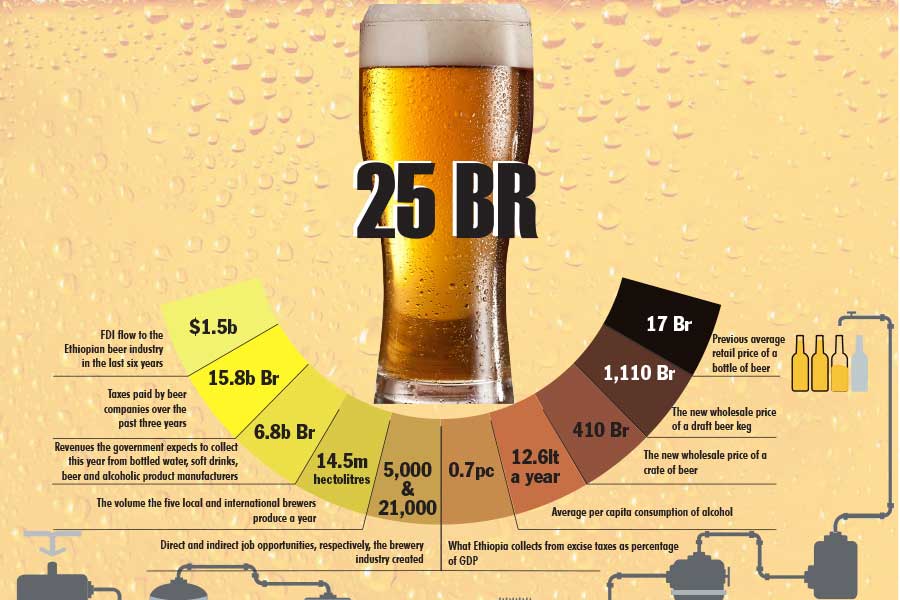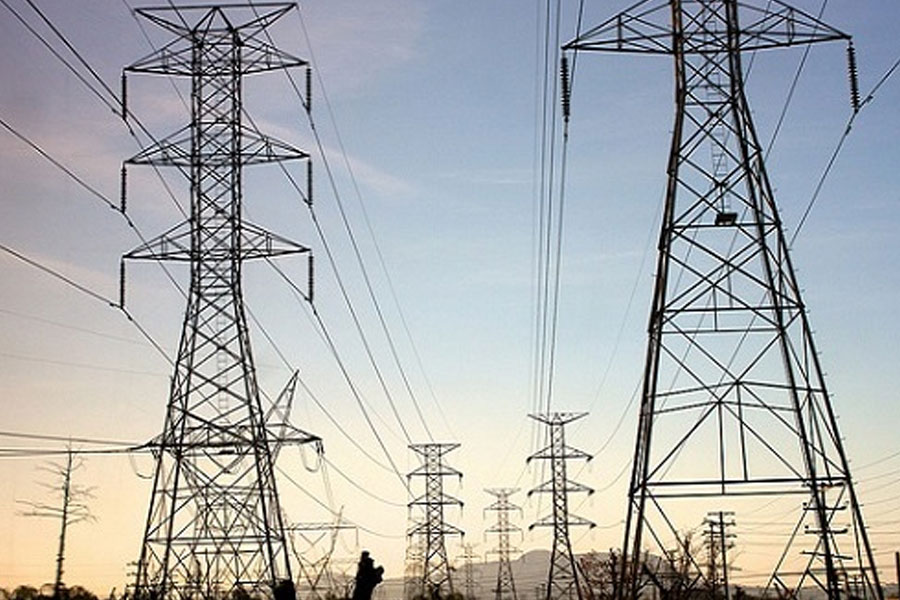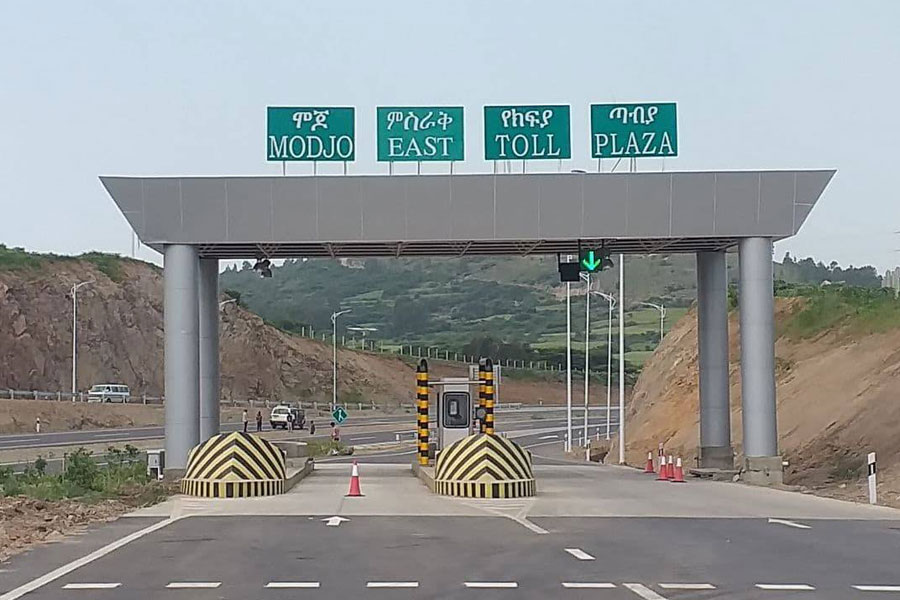
Viewpoints | Jun 29,2019
May 23 , 2021.
It was something of a milestone for the United Nations last week. Rhetorically, so to say; and, for lack of words to describe the 76-year old international organisation whose deeds were dwarfed by its words over the years.
The General Assembly voted last week to include the responsibility-to-protect in its annual agenda, including a request for the Secretary-General to report annually on it. It is significant because it sheds ever greater light on violations of gross human rights, the scale of which is evidently seen in Ethiopia. The idea of providing international protection to suffering civilians under the guise of state sovereignty remains highly controversial ever since the UN adopted a resolution back in 2005.
Member countries agreed to lofty ideas of ensuring international resources would be marshalled to halt mass atrocities, crimes against humanity and acts of ethnic cleansing across the globe. The adoption of the resolution itself spoke much about how the UN works. It was not war crimes by big powers such as the countries with veto power, and their client states during the Cold War, from Vietnam and Afghanistan in the 1980s to the recent "War on Terrorism" campaigns that spurred the organisation to action. The resolution came to be mainly in response to mass atrocities in much weaker states such as Rwanda and the former Yugoslavia.
It was better than nothing, though.
The responsibility to protect stood on pillars that stipulate every member state has the duty to shelter citizens from mass atrocity crimes. Most importantly, it adds that if a state fails to do this, “the international community must be prepared to take appropriate collective action, in a timely and decisive manner and accordance with the UN Charter.”
Signed in 1945, right after the bloody and gruesome years of world wars that claimed the lives of over 75 million people, world leaders wanted to show their resolve to "save succeeding generations from the scourge of war." Declaring their faith in fundamental human rights, they engraved in the charter the establishment of "conditions under which justice and respect for the obligations arising from treaties and other sources of international law can be maintained."
Over the decades, albeit with its many positive attributes, the UN has come to be mainly an international bureaucratic organisation oiled with billions of dollars annual budget but short of meeting its mandate. But it is appropriate to acknowledge that the UN is as good as its founding members with veto power lets it be, and they do not agree often.
Hence, hardly surprising to see the resolutions on the responsibility to protect is referenced for situations in mainly African countries, including South Sudan, the Central African Republic and Mali. The two earliest resolutions are on Sudan, with the conflict in Darfur, the Democratic Republic of the Congo and Burundi in 2006.
Ethiopia might have received a resolution referencing the responsibility to protect from the Security Council if it was not for objections from countries such as Russia and China, and at some point, India and Tunisia.
The biggest concern is the tragic unfoldings in the Tigray Regional State, which continues to suffer from a raging civil war as ugly as could be imagined. The Eritrean army, militia from the Amhara Regional State, and the Ethiopian Defense Forces are battling what is now described as the Tigray Defense Forces (TDF). It is already a scar that will find healing extremely difficult among millions with a common ancestry and a deeply intertwined history. Above all, the apparent lack of empathy and absence of sympathy displayed by many outside the region, if not the justifications and jeers the intellectual enablers of the administration openly made for the continued atrocities and suffering, has brought irreparable damage.
The trauma is not bounded to just the Tigray region, though the scale is bigger as the troubles are enormous. An armed rebellion is in full swing in the west of the Oromia Regional State, where the lives of innocent people continue to be lost. No less alarming has been how essentially political disputes between groups and communities keep flaring up into violent and bloody conflicts that take too many lives regularly. A prominent instance of this is militarised engagements between the forces of the Afar and Somali regional states following disagreements over administrative demarcation.
There is also nothing to be dismissive about the disaster that could be wrought if border skirmishes with Sudan are not handled delicately. If it erupts into full-blown war, it will become the “unimaginable instability” in the region that President Abdel Fattah al-Sisi warned it could be, whether or not a water dispute is at the root of it.
The UN, which promised “to take effective collective measures for the prevention and removal of threats to the peace,” is nowhere to be seen in many of these situations. At best, it is voicing “concerns” or putting together statements that call on the warring parties to respect international laws and norms. It is half-hearted calls exposing the UN`s impotence in the face of atrocities causing so much pain and suffering to children, women and men caught up in senseless conflicts.
No doubt, the world is full of violence, and the Secretary-General can be overwhelmed. A dilly-dally leftist politician who once had served as Prime Minister of Portugal, Antonio Guterres has so much on his plate considering no less than 17 active conflicts causing at least 1,000 deaths this year.
At best, the UN is the organisational manifestation of Wilsonianism, where a world subscribing to similar values - preferably, freedom, democracy and the right to self-determination - would coalesce and defend against any threat to peace. This doctrine of liberal internationalism has arguably achieved some of the critical challenges to human sufferings.
Wars between states are rare these days. Multilateral institutions such as the UN have especially been indispensable in keeping wars between superpowers from breaking out by giving them central roles in how the global world order works. These bodies are also necessary to find consensus and sponsor efforts against global warming, pandemic prevention (to a degree) and, in better times, nuclear containment.
In Ethiopia, the UN and its 25 agencies have been important partners in development, institution building, and humanitarian responses. The country now has 2.2 million more doses of COVID-19 vaccines than it would have had if it was not for the COVAX global vaccine access initiative, which was partly spearheaded by the World Health Organisation (WHO), a UN agency.
But liberal internationalism has its limits. The liberal values underlie institutions such as the UN often hit a wall against culturally assertive civilisations with illiberal leaders and the conformist elites who do not want to be told how to treat their citizens. Russia and China block most Security Council resolutions that are perceived to impact state sovereignty. Neither is the United States itself the morally unambiguous leader of liberal internationalism when it comes to its national interests, having opted out of full membership in the International Criminal Court (ICC), and for the long spoiler of global mobilisations to address climate concerns such as the Paris accord, and its predecessor, the Kyoto deal.
No country would go out of its way to commit resources and human power for a cause that does not pose an immediate threat to themselves, as Henry Kissinger has once noted. More importantly, the UN's statements, resolutions, and even potential sanctions are unlikely to make a dent in the power calculations of groups determined to kill and die for a cause, as is the situation in the Tigray region and other parts of Ethiopia.
Mindful of its limitations, the UN still must act and protect civilians under crossfire. It can start by being less condescending, especially in its treatment of developing countries. The issues that plague countries such as Ethiopia are not as easy as social media activism makes them out to be. Most certainly, they cannot be addressed through something as frivolous as national dialogue and national reconciliation; usually, political theatrics staged in the UNECA`s glittering and shiny conference halls.
The unfoldings in Ethiopia are as historical and every bit as complex disagreements; they require political settlements, drawn specifically and carefully through long, frustrating and nerve-racking negotiations among groups of multiple cleavages. Its failure to engage main players on the ground - in whose hands the terms for peace lie - and portrays developments in black-and-white, the UN will turn into one more aid agency among many. Global leaders have to demonstrate that the claim over state sovereignty can only come with the responsibility to protect citizens from sufferings and atrocities committed within member countries, whether the perpetrator is the state or its challengers.
PUBLISHED ON
May 23,2021 [ VOL
22 , NO
1099]

Viewpoints | Jun 29,2019

Fortune News | Feb 29,2020

Covid-19 | Apr 07,2020

Fortune News | Apr 16,2022

Viewpoints | Feb 27,2021

Fortune News | May 29,2021

Life Matters | Dec 24,2022

Radar |

Fortune News | Jun 19,2021

Fortune News | Mar 19,2022

My Opinion | 132038 Views | Aug 14,2021

My Opinion | 128435 Views | Aug 21,2021

My Opinion | 126362 Views | Sep 10,2021

My Opinion | 123981 Views | Aug 07,2021

Dec 22 , 2024 . By TIZITA SHEWAFERAW
Charged with transforming colossal state-owned enterprises into modern and competitiv...

Aug 18 , 2024 . By AKSAH ITALO
Although predictable Yonas Zerihun's job in the ride-hailing service is not immune to...

Jul 28 , 2024 . By TIZITA SHEWAFERAW
Unhabitual, perhaps too many, Samuel Gebreyohannes, 38, used to occasionally enjoy a couple of beers at breakfast. However, he recently swit...

Jul 13 , 2024 . By AKSAH ITALO
Investors who rely on tractors, trucks, and field vehicles for commuting, transporting commodities, and f...

Jul 13 , 2025 . By YITBAREK GETACHEW
The Addis Abeba City Revenue Bureau has introduced a new directive set to reshape how...

Jul 13 , 2025 . By BEZAWIT HULUAGER
Addis Abeba has approved a record 350 billion Br budget for the 2025/26 fiscal year,...

Jul 13 , 2025 . By RUTH BERHANU
The Addis Abeba Revenue Bureau has scrapped a value-added tax (VAT) on unprocessed ve...

Jul 13 , 2025 . By NAHOM AYELE
Federal lawmakers have finally brought closure to a protracted and contentious tax de...